JUNE 2022. Blues Vol 38 No. 6.1
- Text
- Wwwbluespdmagcom
- Additional
- Uvalde
- Trooper
- Chiefs
- Responders
- Heroes
- Galveston
- Tango
- Enforcement
- Blues
A BADGE OF HONOR heal
A BADGE OF HONOR heal ing our heroes Asking the Follow Up Questions: How to Support Those we Work With. By Samantha Horwitz As I walked into the classroom to speak to a sheriff’s recruit class located in rural Texas about stress and post-traumatic stress, all thoughts were on the tragic events in Uvalde, Texas. For me personally, I thought about the chaos on 9/11. More than 20 years has passed, and in the blink of an eye I was right back there remembering people running through the streets, the jumpers from World Trade Center Tower 1, and the survivor’s guilt of not being able to save more that day. I shared my memories with the recruits and how an event so far removed can bring forward trauma from the past. Our brain is an amazing organ. Its storage capacity for the unimaginable is frightening and exciting. The conversation turned into a discussion on awareness and how we can support each other after trauma. The law enforcement officers and first responders in Uvalde, Texas who exchanged gunfire with the shooter and those first on the scene will need to be supported by their departments over the next days, weeks, and months. Once the CISM teams leave, the funerals end, and the investigation concluded what then? Uvalde will never be the same and neither will the law enforcement officers and first responders. As part of the team at A Badge of Honor, our workshop addresses the things we miss as law enforcement officers and first responders inside our own departments. We are trained to capture the details and document crime scenes, yet we sometimes miss what is going on with our own partners and co-workers. How many times have we heard reports of an officer completing suicide and those closest saying, “I noticed recently that he / she was showing up late for work, I should have said something.” We are so quick to jump into action for strangers, yet when it is one of our own, we hesitate. Why? I posed that question to the recruits. Here is a list of a few of the answers they gave me: • Stigma. • I do not want to get them in trouble. • I am afraid I might make things worse. I have been trapped in the prison of post-traumatic stress, one of the biggest things I did was self-isolate. I did not talk to anyone and if someone asked me if I were okay, I would respond with, “I’m fine.” There was no follow up, no asking another probing question. How many of you reading this have either told someone you were “fine” when you were SAMANTHA HORWITZ & JOHN SALERNO not, or received “I’m fine” as a response from someone else? What your partner, your co-worker, your friend, needs for you to do is challenge an “I’m fine” response with, “Are you sure? Because I have noticed that you seem really angry, really distracted, you never hang out anymore, whatever the change in behavior is.” Being specific, stating what you observe will usually garner a response in return where the person will open up. Once open, stress is released. When stress is released, then there is hope. Where there is hope, there is not feeling alone anymore and a strong possibility that you just saved someone’s life. I often talk about courage in our workshops. Our training creates courage that is almost unconscious. It allows us to run into burning buildings and toward gunfire. That courage is easy to muster. The greatest courage we can show is the courage to ask the follow up question to, “I’m fine.” And the courage to ask for help. It is important that our departments start creating changes in the way they deal with trauma. We cannot keep telling one another that we have each other’s backs and then turn away when we need to talk about the calls that are causing us nightmares and stress. Once command staff in our departments decide to face the reality that trauma is real, that post-traumatic stress is real, and that our brains were not designed to handle the levels of traumatic incidents and then create outlets for us like peer support or partnerships with organization that can bring in resources, will we be able to finally do away with the stigma that has robbed us of 1,051 first responders since 2017, bluehelp.org. It is time that our profession creates meaningful change. ABOUT THE AUTHOR Samantha Horwitz is a regular contributor to The Blues Police Magazine. She is a 9/11 first responder, former United States Secret Service Agent, speaker, and author. She and her business partner, retired firefighter and NYPD detective John Salerno created A Badge of Honor, a 501(c)(3), non-profit post-traumatic stress awareness and suicide prevention program for first responders. John and Sam host MAD (Making a Difference) Radio, Wednesdays 7pm central live on FB @Makingadifferencetx. For more about Sam & John and the wellness and resiliency workshops for first responders, visit ABadgeofHonor.com. Delivered to Your Inbox Every Month FOR FREE 90 The BLUES POLICE MAGAZINE The BLUES POLICE MAGAZINE 91
- Page 1 and 2:
The BLUES POLICE MAGAZINE 1
- Page 4:
FOUNDED IN 1984 OUR TEAM MICHAEL BA
- Page 8:
FROM THE GUEST EDITOR’S DESK CONG
- Page 12:
READERS SPEAK OUT your views ONE DA
- Page 16:
AROUND THE COUNTRY GCSO SGT. HIT BY
- Page 20:
AROUND THE COUNTRY YOU CAN’T HIDE
- Page 24:
AROUND THE COUNTRY MEALER WINS RUNO
- Page 28:
By Michael Barron MASSACRE IN UVALD
- Page 32:
Texas School District Chiefs Associ
- Page 36:
Texas School District Chiefs Associ
- Page 40: 40 The BLUES POLICE MAGAZINE The BL
- Page 44: Texas School District Chiefs Associ
- Page 48: Head Down to Galveston Island Katie
- Page 52: HONORING A FALLEN HERO DEPUTY ROBER
- Page 56: HONORING A FALLEN HERO DEPUTY ROBER
- Page 60: EST. 1953 ® Starting January 1, 20
- Page 64: EST. 1953 ® On August 12, 2021, De
- Page 68: EST. 1953 ® DEPUTY NOE RODRIGUEZ,
- Page 72: EST. 1953 ® On September 20, 2021,
- Page 76: EST. 1953 ® On February 20, 2021,
- Page 80: REMEMBERING THOSE WE’VE LOST Lost
- Page 84: Drunk Mom Kills 6yr Old Daughter In
- Page 88: BOSTON’S FINEST Part of the reaso
- Page 94: HOUSTON POLICE OFFICERS UNION from
- Page 98: HONORING FALLEN HEREOS “Honoring
- Page 102: ADS BACK IN THE DAY 102 The BLUES P
- Page 106: THERE ARE NO WORDS parting shots...
- Page 110: Gillespie County Sheriff's Office G
- Page 114: BECOME A BAYTOWN PATROL OFFICER! ST
- Page 118: BEDFORD POLICE DEPARTMENT WE'RE HIR
- Page 122: Forney ISD Police Department NOW HI
- Page 126: GALVESTON COUNTY SHERIFF’S OFFICE
- Page 130: Memorial Villages Police Department
- Page 134: MAKE A DIFFERENCE IN YOUR COMMUNITY
- Page 138: City of Wylie Police Department OFF
- Page 142:
142 The BLUES POLICE MAGAZINE BACK
Inappropriate
Loading...
Mail this publication
Loading...
Embed
Loading...


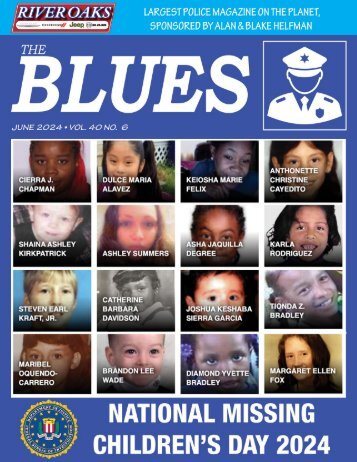
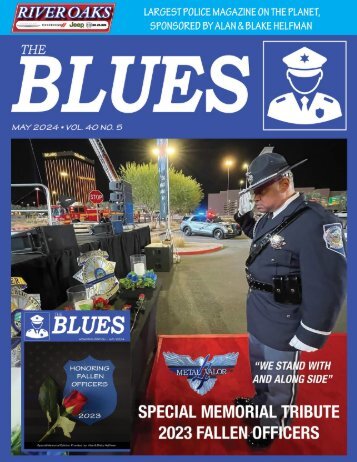
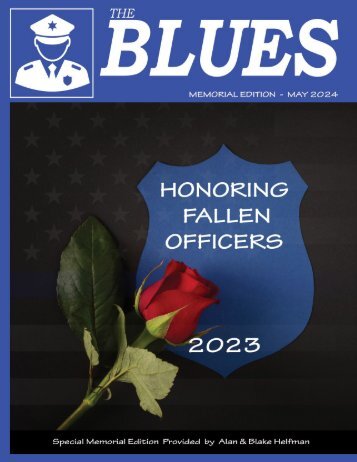
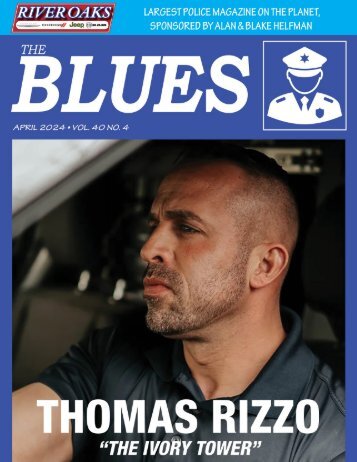
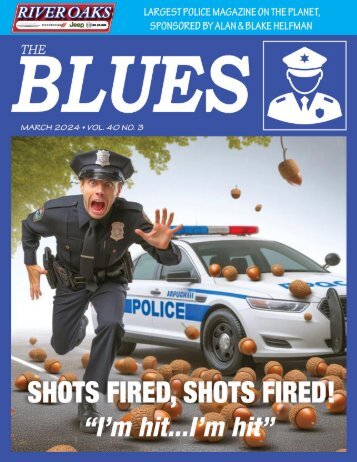

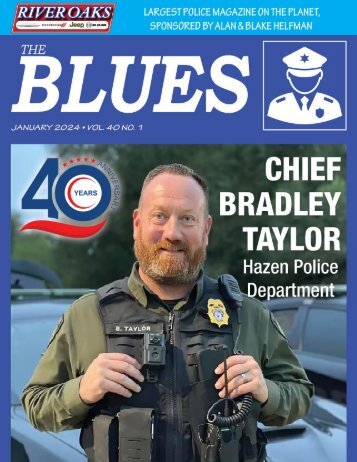
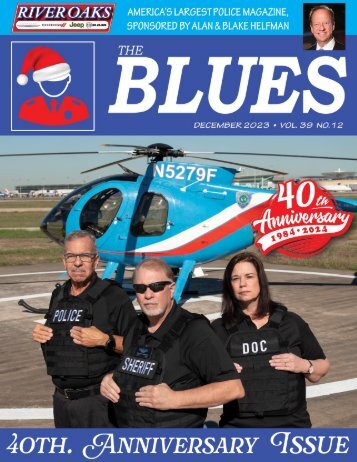
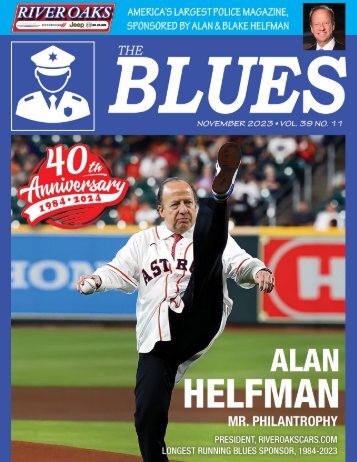
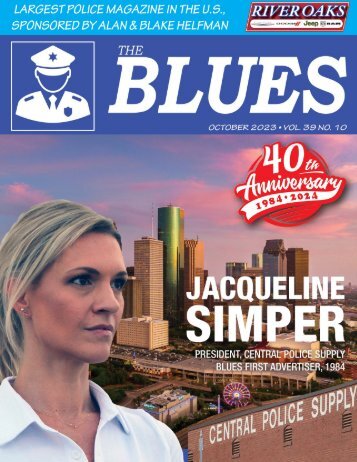
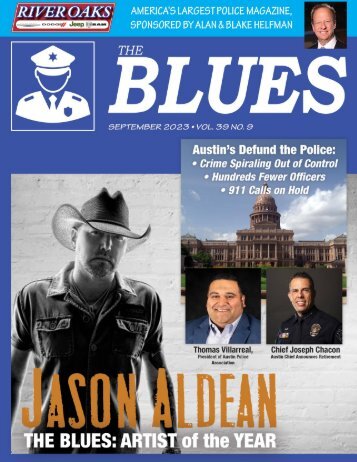
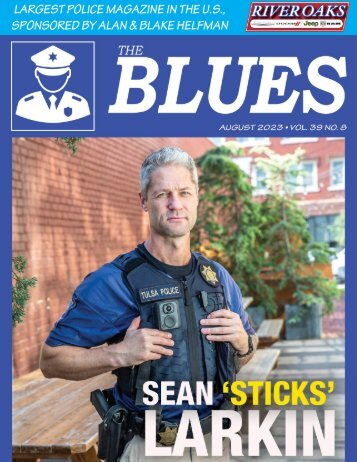
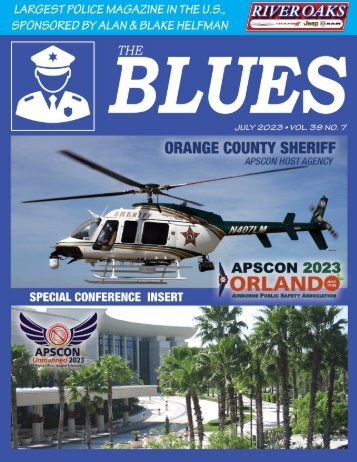
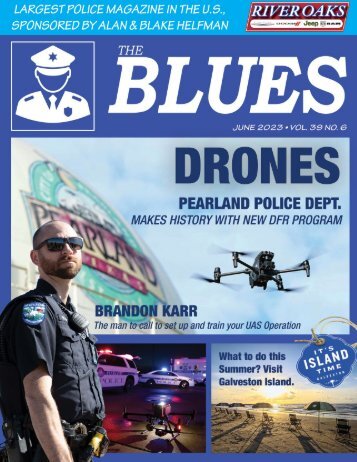
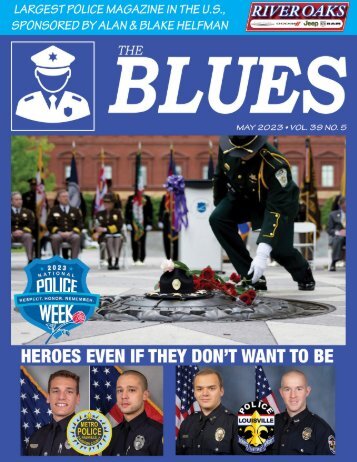
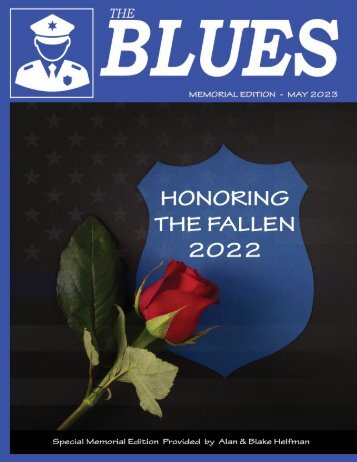
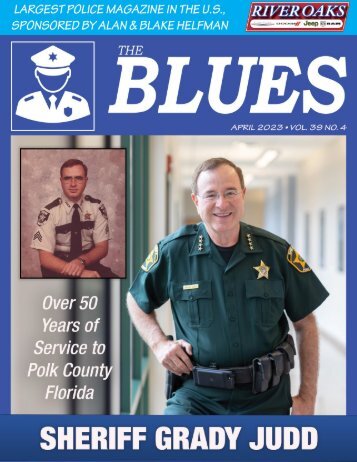
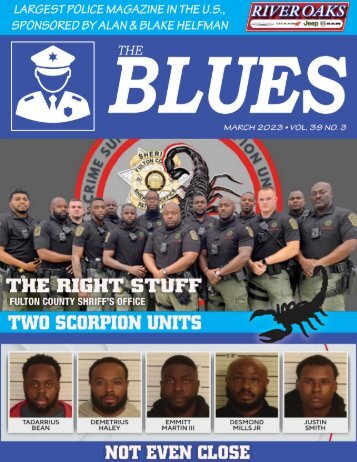
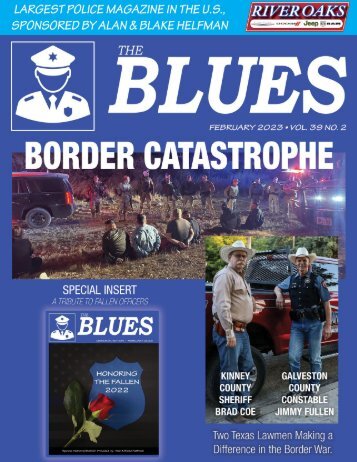
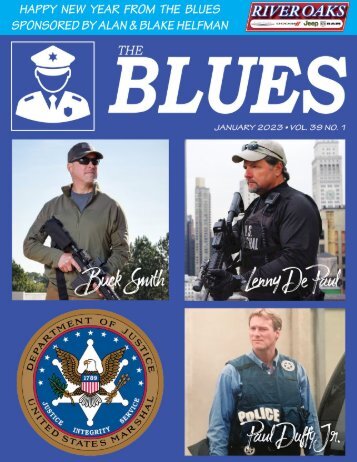

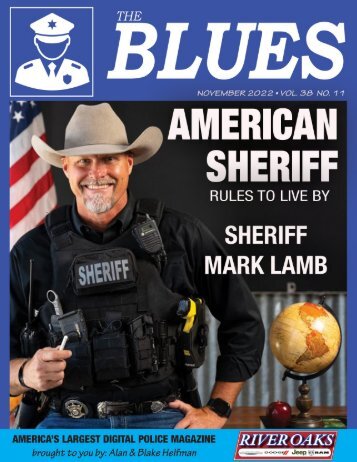
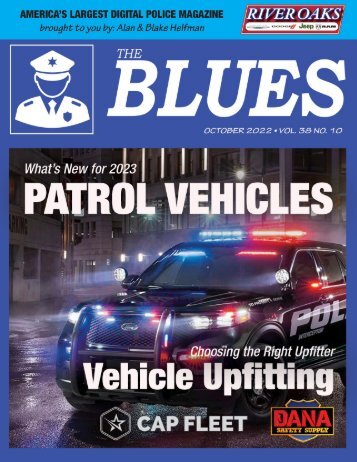
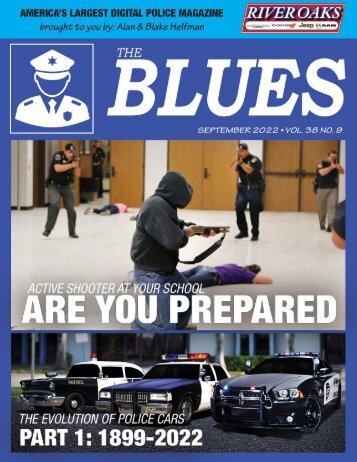
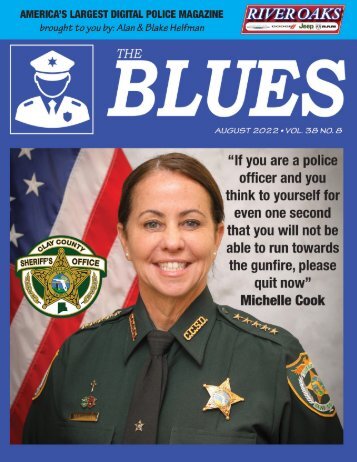
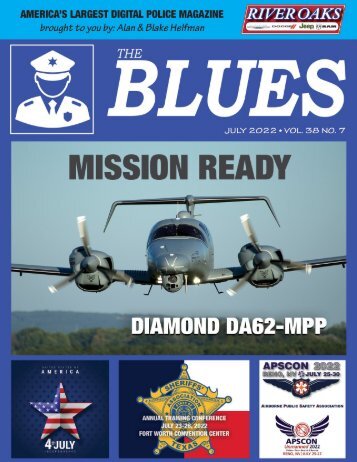
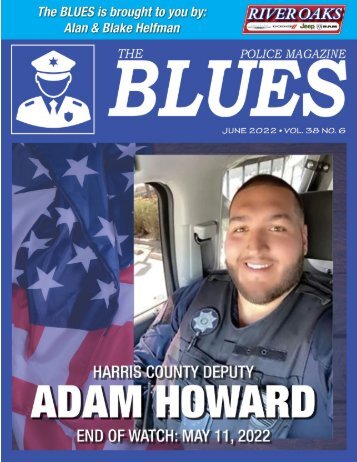
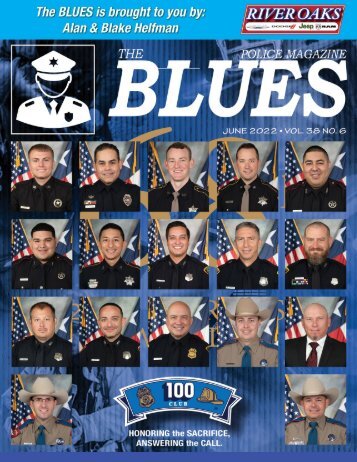
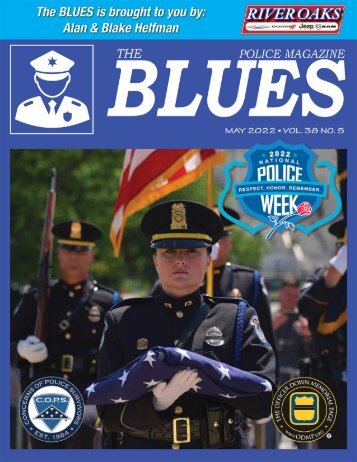
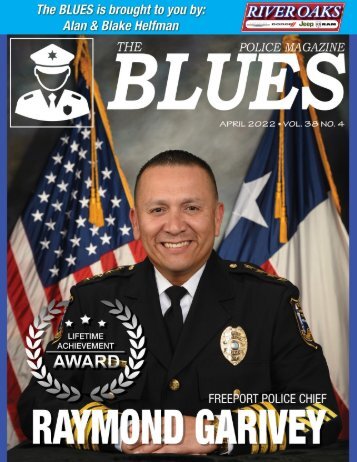
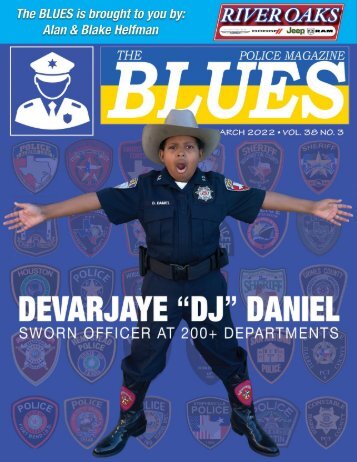
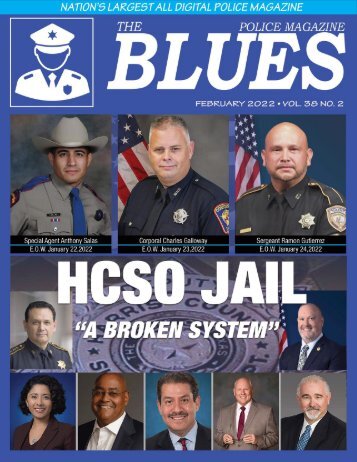
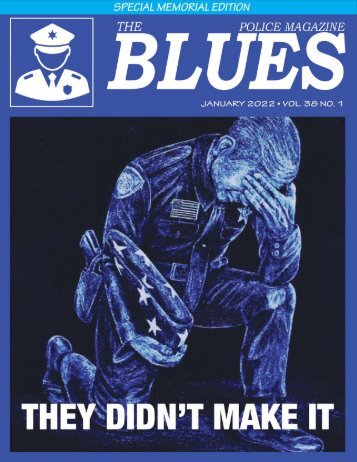
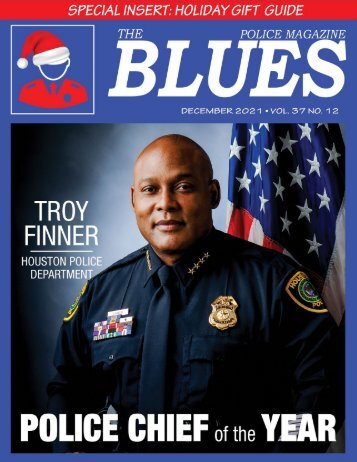
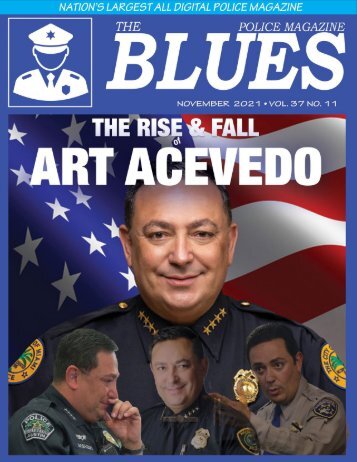
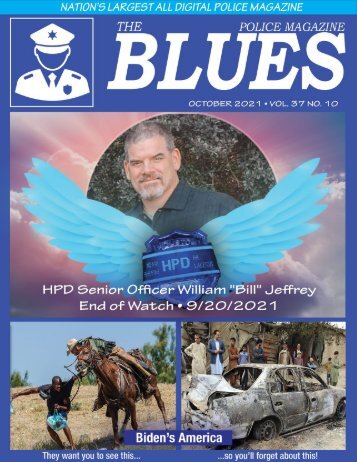
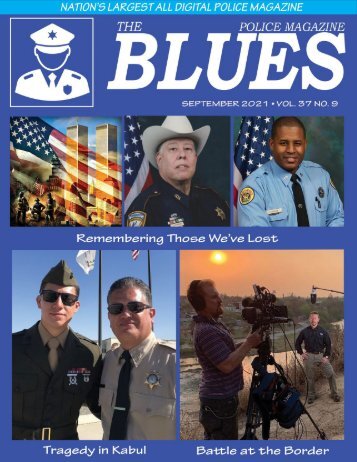
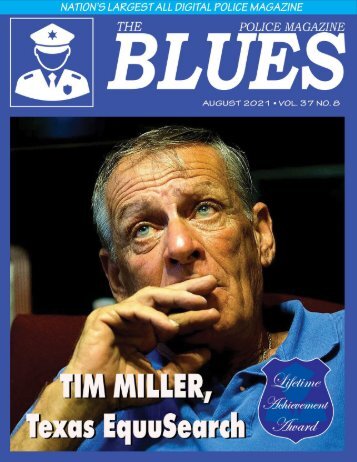
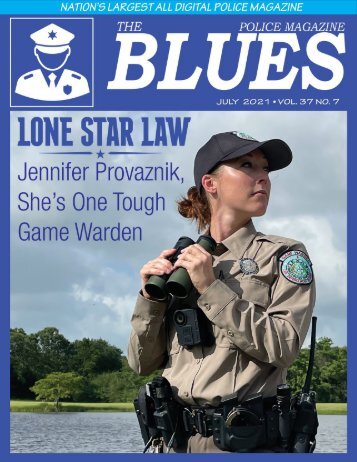

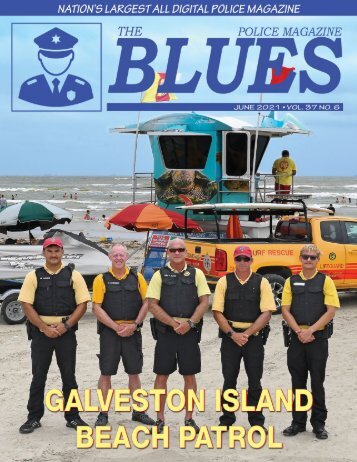

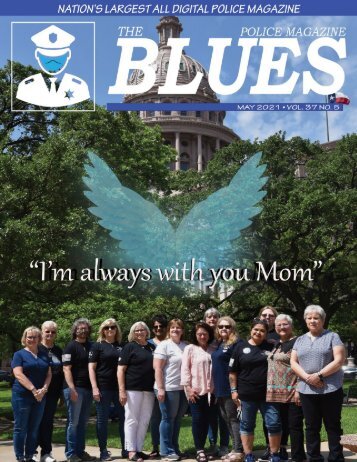
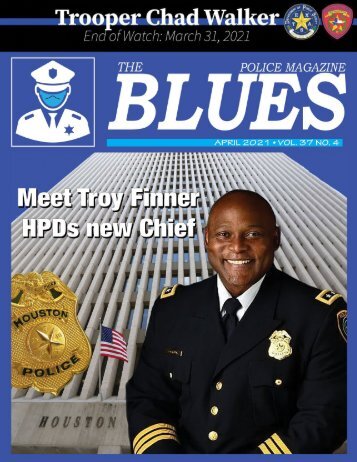
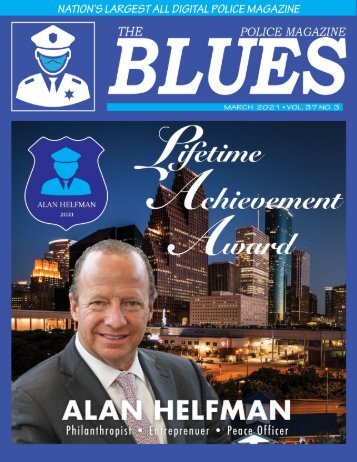
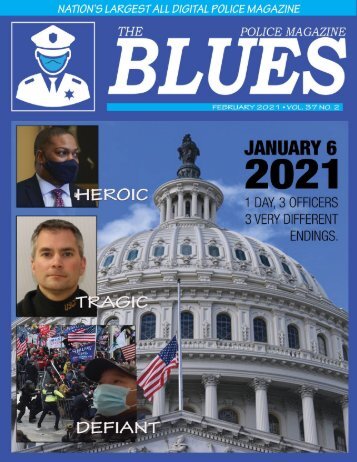

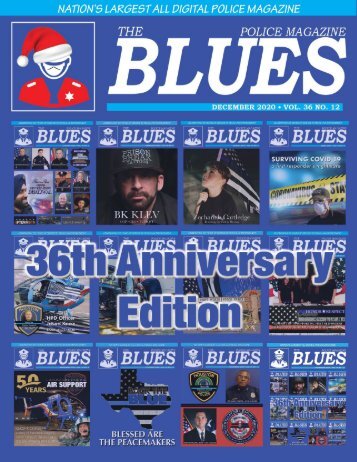
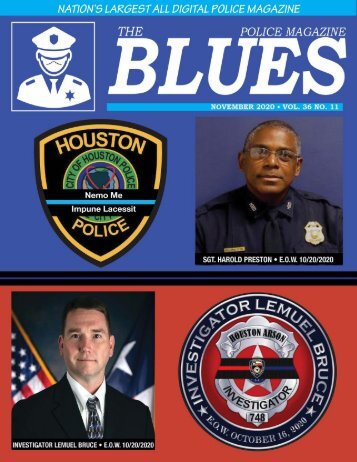
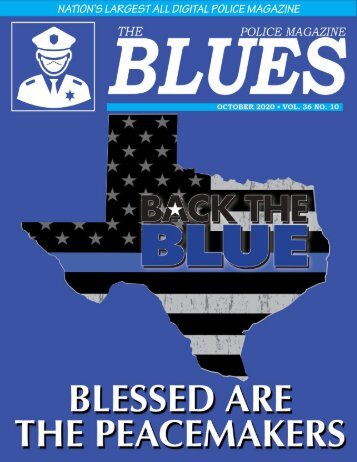
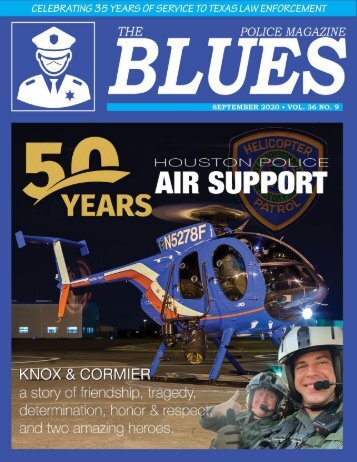
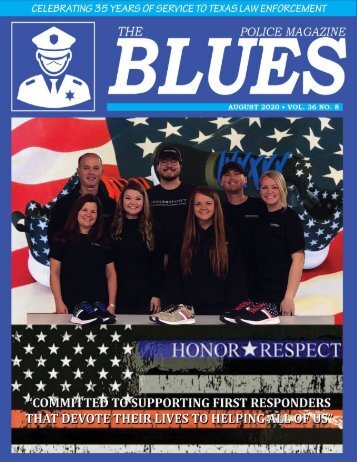
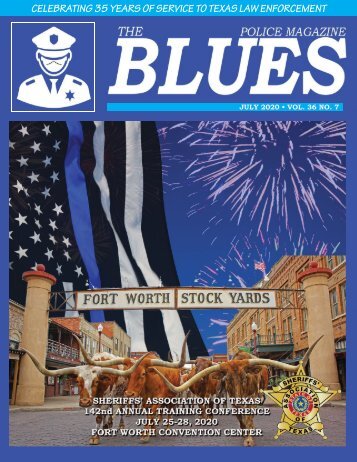
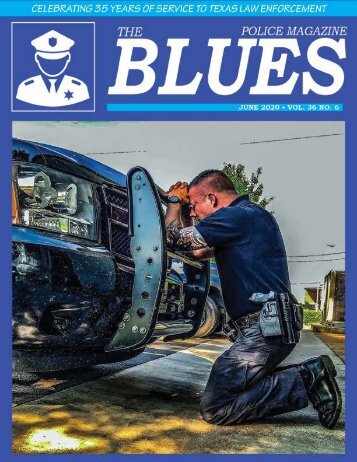
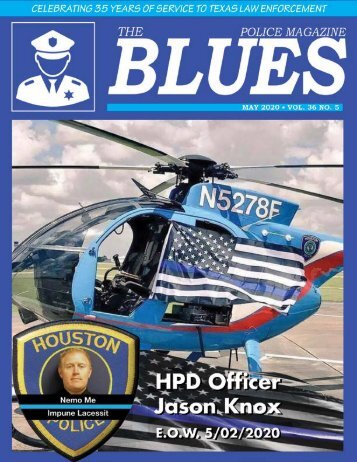
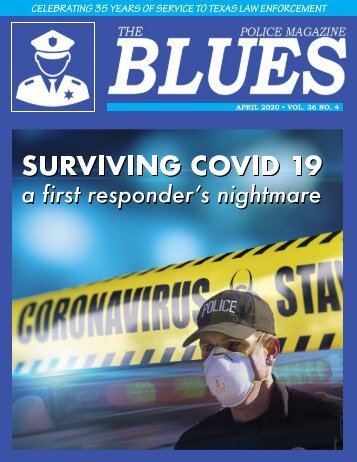
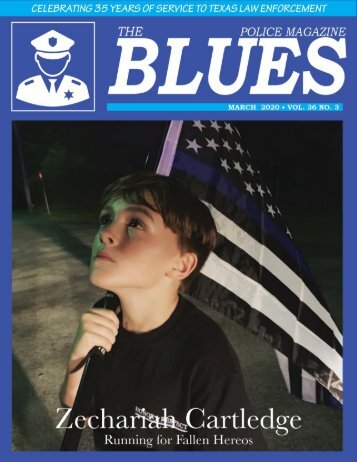
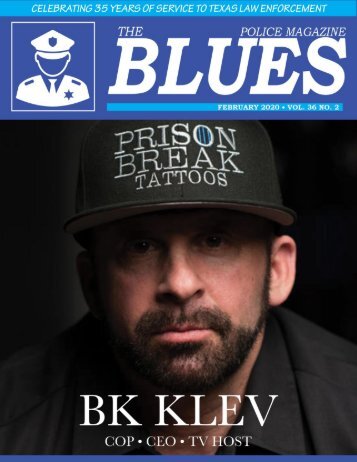
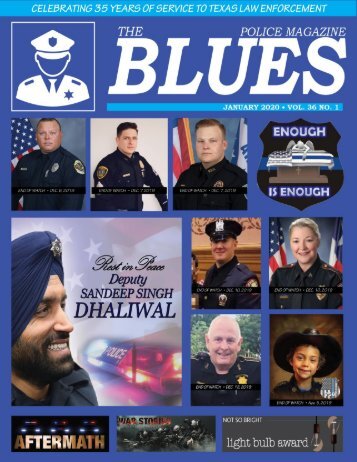
Follow Us
Facebook